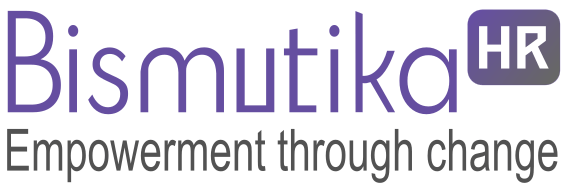
Layoffs, whether or not you are entitled to severance pay, and other entitlements are important things to know as an employee. This information can help you get through this stressful ordeal. As an employer, you can go through the dismissal process correctly by knowing all the details.
Individual dismissal
Dismissal is a unilateral decision to terminate the employment contract of an employee, initiated by the employer. It can be realized for various reasons, which must be effective, real and serious. The reasons for dismissal are regulated by Romanian labor legislation. According to the Labor Code (Law no. 53/2003), dismissal can be made for economic, disciplinary or incapacity for work reasons.
Types of dismissal
Dismissal for personal reasons
This includes dismissal for disciplinary misconduct, including those related to breaches of internal rules. These are actions or inactions that seriously affect the company’s business. In this case, the employer must apply a fair disciplinary procedure. Disciplinary dismissal is the last measure that can be taken. In serious, explicitly foreseen cases, dismissal may also be applied. In all cases, the employee must be given the opportunity to express his or her point of view during the disciplinary investigation.
Dismissal for economic reasons
This type of dismissal takes place when the employer faces financial difficulties or reorganizes the activity. In this case, there is a legal basis for reducing the number of employees.
Dismissal for incapacity for work
It applies when the employee is no longer fit to work for medical reasons. In this case, the employer may dismiss the employee after a period of recuperation or incapacity for work determined by the doctor.
Dismissal procedure under Romanian law
Whatever the type of dismissal, the employer must follow a well-defined, multi-stage procedure to avoid abuse and protect the employee’s rights.
Notification of dismissal
The dismissal must be notified to the employee in writing, with proof of delivery. In this document, the employer must clearly motivate the dismissal decision, mentioning the legal grounds (economic, disciplinary or health reasons).
Granting rights in the event of dismissal
According to the Labor Code, the employee has a notice period of 20 working days. During this period, the employee can look for another job. The notice is an advance notice that an employee or an employer receives when one of the parties wishes, or is forced, to conclude an employment contract. It is a way of allowing time until both parties are no longer working together.
But why is notice important? First of all, it provides a transition period, and therefore protection, so that both employer and employee can plan for the future. It can be about the employee finding a new job, financial planning for both parties, and strategic planning for the employer. Secondly, notice promotes a fair and transparent working environment. Even in the event of a dismissal, the employee-employer relationship can be ended in a civilized and respectful manner.
The legislation in force establishes the minimum notice period that the employer must give. This is a minimum of 20 working days, regardless of the nature of the post, executive or managerial. People with disabilities are entitled to 30 working days’ notice.
Redundancy and compensatory pay
Under Romanian law, the dismissed employee may be entitled to financial compensation. Severance pay is regulated by collective labor contracts at company, branch or industry level. In the absence of mention of such a benefit for the employee, it may be the employer’s option to grant one or more compensatory wages, and not an obligation.
Unemployment entitlement for dismissed employees
In case of dismissal, the employee can apply for and receive unemployment benefit, if he fulfills the conditions required by law. For this purpose, the employer is obliged to fill in and sign a form called “Declaration of unemployment”. The form is submitted to the Employment Agency to enable the employee to access the benefit. In the case of dismissal for disciplinary reasons, the employee is not entitled to unemployment benefit.
Redundancy – tips for managing it effectively
We have gathered some tips for employees who are going through this process of dismissal, in the most efficient and stress-free way.
Effective communication with employer and co-workers
Effective communication with your employer and coworkers is essential to maintain healthy relationships and facilitate productive collaboration. Here are some tips to hopefully help you when going through a layoff:
- Be open and honest! Honest and open communication with your employer and coworkers is essential during the notice period. Share your intentions and concerns in a respectful and professional manner.
- Stay involved and professional! Continue to fulfill your responsibilities properly and be present at work. Maintain a professional and positive attitude, even though the dismissal process can be difficult.
- Make sure you have a clear understanding of the terms of notice and tasks to complete. Communicate with your employer to clarify the terms and conditions of your notice, as well as the tasks you need to complete before you leave.
From redundancy to transition to a new job
As you prepare to make the transition to a new job, it is important to be properly prepared. Some useful tips to prepare for a new career opportunity:
- Make sure your CV is up-to-date and reflects your latest experience and skills. Also consider updating your profiles on recruitment platforms such as LinkedIn.
- Use the notice period to explore the career opportunities available. Search for new jobs, attend networking events and prepare for interviews.
- Keep a positive and open attitude. Transitioning to a new job after being made redundant can be challenging. Try to keep a positive attitude. Be open to new opportunities and prepare to learn and grow in a new professional environment.
- Ask your employers for a recommendation. Especially if you don’t go through a dismissal for reasons related to the employee’s person, you have a very good chance of getting one.
Personal or legal advice
Redundancy can be a stressful and uncertain time. That’s why it’s important to make sure you have access to appropriate advice and support.
- Seek legal assistance if necessary. If you have questions or concerns about the notice process or the terms of your dismissal, you can consult an employment law attorney. This will help you to understand your rights and ensure that the process is carried out in accordance with the law.
- Get emotional support. Being made redundant is emotionally difficult. Try talking to friends or family members for support and encouragement during this time. You can turn to a personal development counselor to help you cope with professional, financial and emotional stress. You can also get very effective wellbeing sessions for emotional stress with neurofeedback brain training.
- Explore other available resources! There are organizations and services that can provide redundancy support. Sometimes these services can also be offered directly by the employer, as part of outplacement services arranged with specialized providers. Employers thus offer support for dismissal and transition to a new job. The employer who invests in the right way in the relationship with the employee and in its employer brand, if it has the financial resources to do so, can turn to an outplacement service provider. These will be offered to the employee to ease the transition into employment. Fox Expert Advice is one of the few HR providers that offer outplacement services (more details here).
Other employee rights in the event of dismissal
Right to information
As an employee, you have the right to receive clear and full notice from your employer of its intention to terminate your employment. This must contain the reasons and terms of termination.
Entitlement to pay and other benefits
During your notice period, you are entitled to receive your salary in accordance with your contract of employment and the legislation in force and the other benefits provided for in your contract. There must be no reduction in salary during this period.
Right to paid time off
In some cases, employees may receive paid time off during the notice period for attending interviews. This may be established in the employment contract or by legislation and must be respected by the employer. Where it is not an obligation, covered by collective agreements or internal rules, this may be part of the negotiation between the parties.
Entitlement to unused rest leave
If you have untaken vacation days, they can be taken during your notice period, if you wish, or compensated in cash at the end of your employment contract. Your employer may prefer you to take the leave days, but you do not have to take the untaken leave. You can wait for cash compensation for untaken leave until your salary entitlements have been liquidated.
Protection against unfair dismissal by following legal procedures
The employer must follow the legal procedures regarding the termination of employment. These include written notification, the existence of good cause, compliance with the notice periods laid down in the legislation, and the proposal of other available posts, where appropriate. It is also prohibited by law to discriminatory dismissal on grounds of race, sex, religion, sexual orientation. Other criteria protected by law that prohibit dismissal are during sick leave, rest leave, parental leave, etc.
If you believe that you have been unfairly or illegally dismissed, you have the right to challenge this decision in court. You have 45 days from receiving the dismissal decision to lodge an action in court
The right to legal representation and challenging the dismissal decision in court
If you encounter problems or concerns during your notice period, you have the right to seek legal assistance. A lawyer specialized in employment law can guide and represent you in front of your employer, protecting your interests.
The right to documents attesting seniority and the decision of termination
The employer is obliged to issue a seniority certificate to the dismissed employee. This will certify the period worked, the salary and the position held. The employee must also receive the termination decision.
Protection against harassment and retaliation
The employer has an obligation to protect employees during the notice period from harassment or retaliation. If you feel victimized, you can make a formal complaint or seek legal assistance.
If you need help in understanding certain aspects related to notice in the workplace, don’t hesitate to ask us! You can call on our HR consultancy services.
We are here to support you and answer any questions you may have. Our team of experts is ready to assist you in clarifying legal terms or your rights, both for employees and employers.
